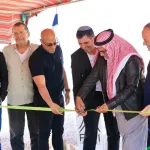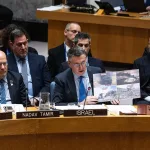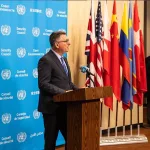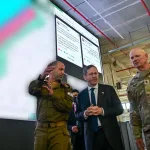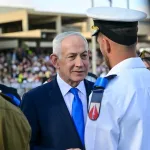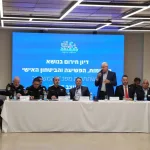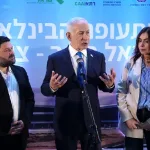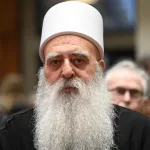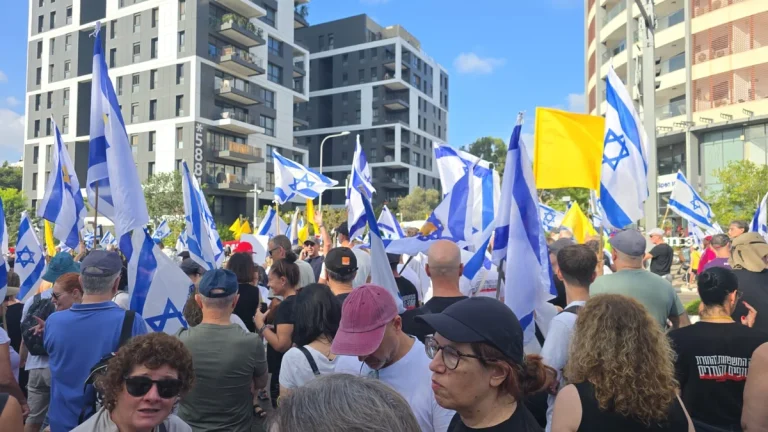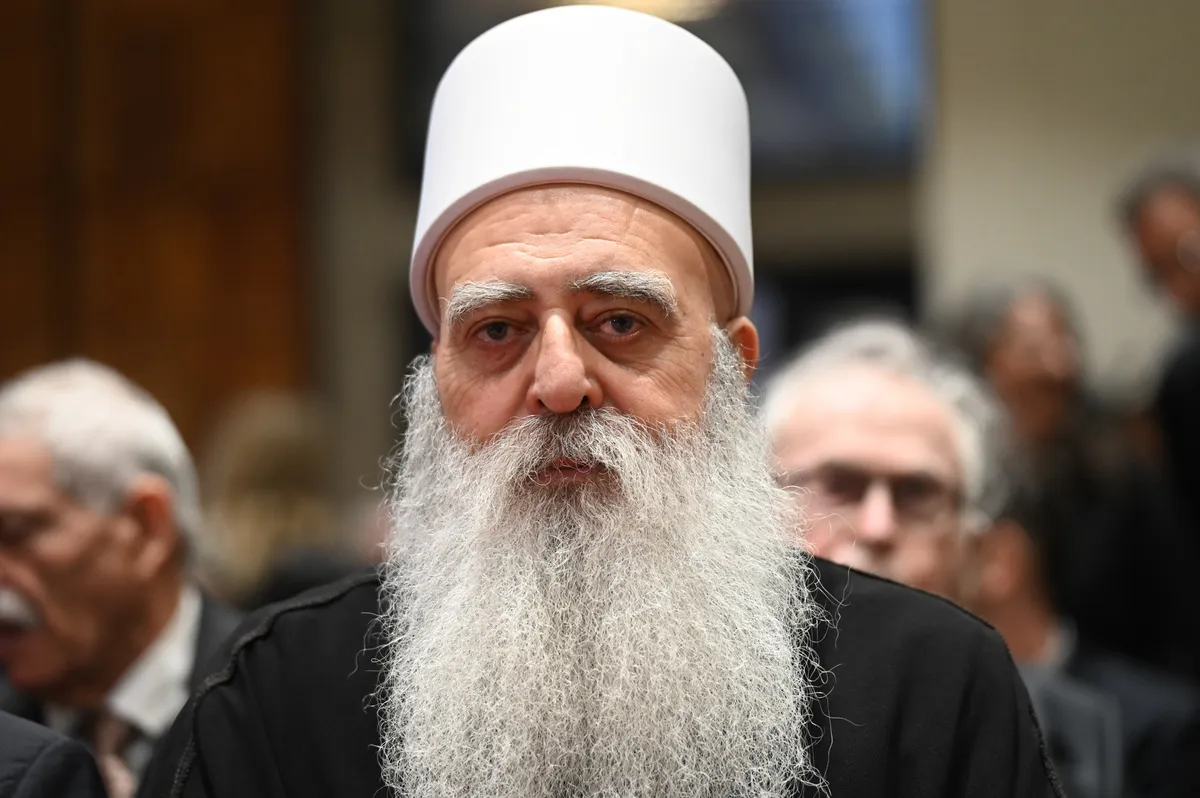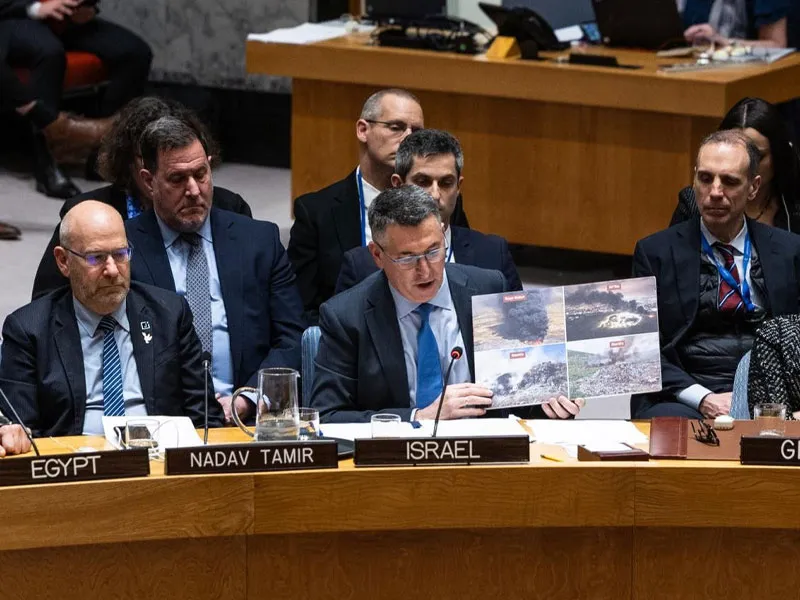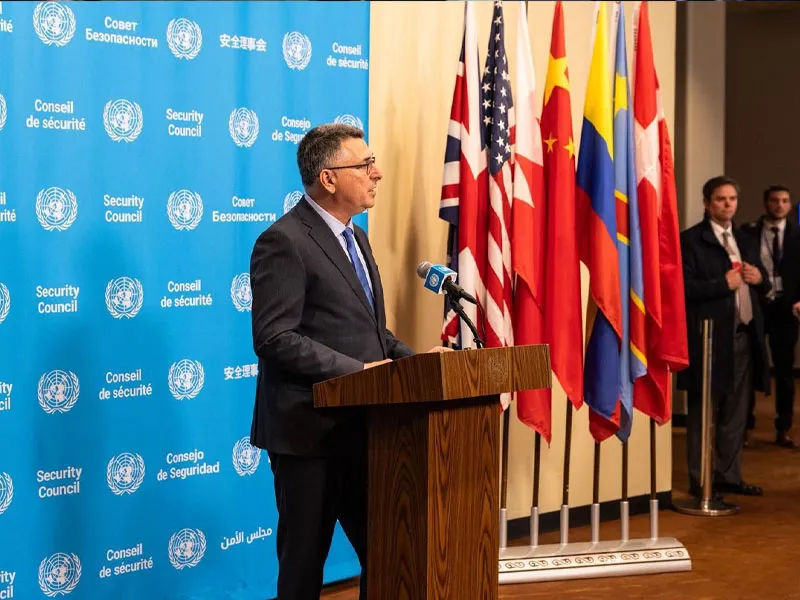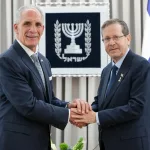Jerusalem, 17 August, 2025 (TPS-IL) — A nationwide general strike swept Israel on Sunday as families of the hostages protested the government’s decision to expand the war in Gaza rather than pursue a deal to bring their loved ones home.
The strike, coordinated by the October Council together with the Hostages and Missing Families Forum, began at 6:29 a.m.—the exact time Hamas launched its assault on October 7, 2023. Demonstrations erupted at intersections across the country, with protesters distributing yellow ribbons, the symbol of the hostages. Organizers said they expected nearly one million people to pass through Tel Aviv’s Hostage Square during the day and tens of thousands more to rally at hundreds of other locations.
The families announced they will establish a permanent tent encampment on the Gaza border beginning Monday, calling it “Waypoint 50” after the number of captives believed to remain in Gaza. “The encampment will be set up at the point closest to the 50 hostages on the Gaza border,” the forum said in a statement, adding that relatives will “sleep there, fight there, and from there declare the coming actions of the struggle to bring back their loved ones.”
At Hostage Square, families unfurled a massive Israeli flag bearing the faces of the hostages. “The obtuseness of the government… obligates us to intensify the struggle and do everything to bring back our loved ones,” the forum said.
Among those speaking out was Yael Adar, whose son Tamir was taken hostage and later killed. She called the strike “a critical national outcry,” saying, “For 22 months we’ve lived in constant anxiety and complete uncertainty. The hostages are paying with their lives and the families are falling apart.” She warned that continued inaction could leave Israel “running like a third-world nation.”
Other parents echoed the sense of urgency. “Until now they separated bereaved families from hostage families, as if bereavement means supporting an endless war,” said Vicki Cohen, whose son Nimrod has been in captivity for nearly two years. “This shows it isn’t true. Bereaved families are with us. They also want the war to end and the hostages to return.” She urged leaders to “propose a comprehensive plan and initiate a deal now,” adding, “This is not only a cry for my son but a battle for Israel’s future. Silence kills.”
Municipalities and institutions joined the protests in large numbers. Tel Aviv closed community centers, pools, and cultural events, while Herzliya arranged free transportation to Hostage Square. The Manufacturers Association endorsed companies allowing workers to participate, and several universities—including Tel Aviv University, Ben-Gurion University, and the University of Haifa—encouraged staff and students to take part.
By morning, around 200 demonstrators blocked Tel Aviv’s main highway. Protest convoys were expected to converge on the city later in the day, with marches, speeches, and rallies planned across the country. The central rally at Hostage Square was scheduled for 8 p.m.
The strike marks one of the most sweeping acts of civil protest since the October 7 massacre, which killed some 1,200 Israelis and saw over 250 abducted into Gaza. More than 100 remain unaccounted for, with roughly 50 believed to still be alive in captivity.
“The strike is not only about our loved ones,” Adar said. “It is about who we are as a nation. If we do not act, we are lost.”
Approximately 1,200 people were killed and 252 Israelis and foreigners were taken hostage in Hamas’s attacks on Israeli communities near the Gaza border on October 7. Of the 50 remaining hostages, around 30 are believed to be dead.







